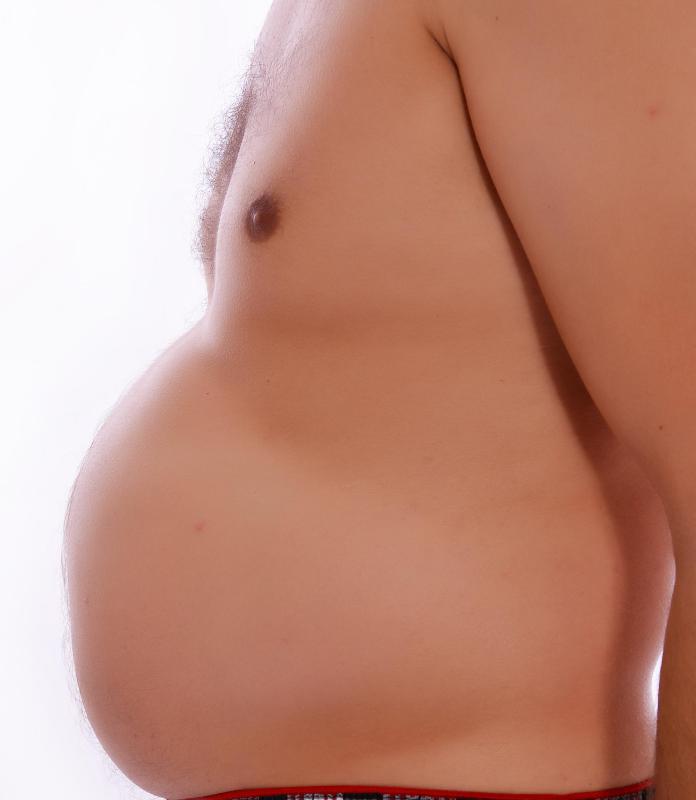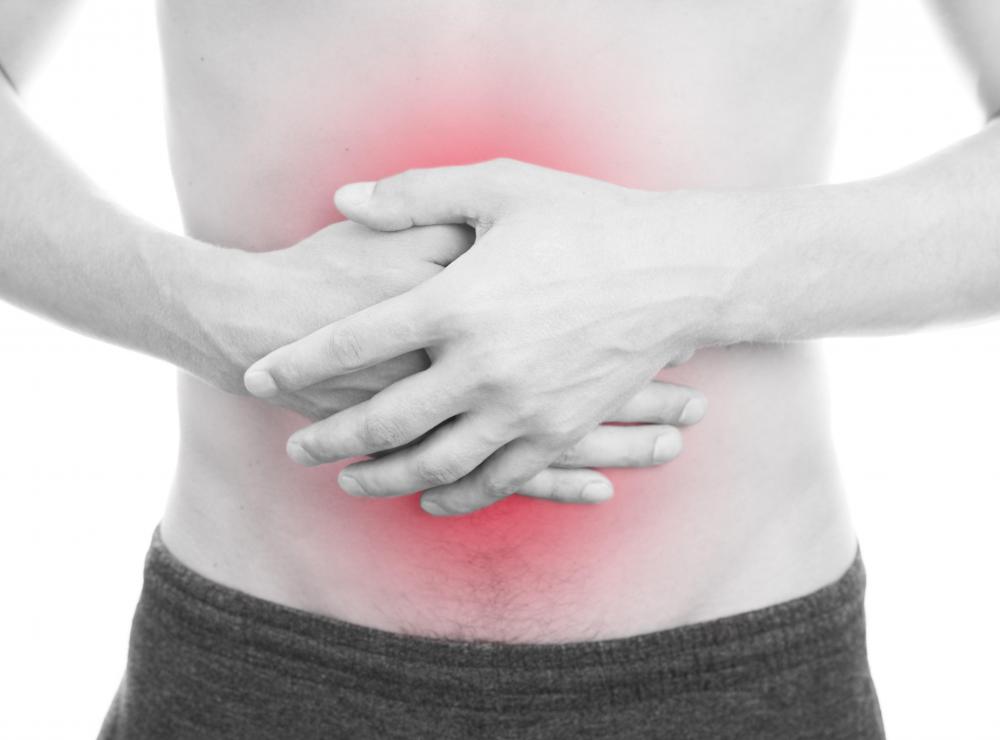At TheHealthBoard, we're committed to delivering accurate, trustworthy information. Our expert-authored content is rigorously fact-checked and sourced from credible authorities. Discover how we uphold the highest standards in providing you with reliable knowledge.
What is a Parastomal Hernia?
A parastomal hernia can be one of the more uncomfortable and tricky-to-treat types of hernias. Generally defined, a hernia occurs when the intestine or some other abdominal content bulges through a weakness in the adnominal muscle wall. A parastomal hernia specifically occurs around a stoma, when the bowels bulge underneath a medically created hole, such as a colostomy.
This condition is a common colostomy complication because of the nature of a stoma, which is in effect an abdominal protrusion and thus creates a weak spot. Optimally, when a stoma is performed, the abdominal walls are left to fit around the stoma tightly. In cases where the fit isn't tight enough or has loosened over time, a hernia can form.

Other factors can lead to the formation of this kind of hernia. These include having an infection at the site during the creation of the stoma, being overweight or repetitive coughing, sneezing or straining. Often, the hernia does not form immediately, but occurs over time as the muscles around the stoma wear down and loosen. Then, the more a person sneezes, coughs or strains, the more there is a risk of an abdominal protrusion.

As the muscles around the stoma stretch and the hernia becomes worse, complications from the condition can develop. Pain is a rare but potential side effect. More commonly, the symptoms of a parastomal hernias are discomfort and an embarrassing, large bulge near the site of the stoma. In cases when the bulge becomes too large, the hernia might also get in the way of the colostomy or other pouch.

A more serious complication happens when the intestine gets pinched within the hernia. Pain and obstruction can ensue, leading even possibly to the intestine becoming strangulated and losing its blood flow. The cut-off intestine can suffer permanent damage if medical help is not sought immediately. A medical professional might recommend a surgical repair of the hernia to prevent further complications.

In the case of other hernia situations where serious complications are not present, some medical professionals might not recommend surgery. If patients have smaller hernias but also underlying medical issues, or if they are elderly and surgery could be dangerous, this could preclude the use of surgery to repair a parastomal hernia. For these patients, a wide stoma belt that is firmly attached could help prevent issues, and a girdle could help minimize symptoms.
AS FEATURED ON:
AS FEATURED ON:















Discussion Comments
If a parastomal hernia develops after an ileostamy, what does this mean for the reversal surgery? Can reversal still be done?
@ankara-- Have you tried a hernia belt? A hernia belt will help with the discomfort and will make movements easier for you. I've been wearing one for the past couple of years. I too have a parastomal hernia and had hernia surgery three years ago.
I think doctors like to wait at least a year before they do reconstruction, so even if you need one, I think you will have to wait for another six months. Meanwhile, the hernia belt can help you.
I had a hernia repair for a parastomal hernia six months ago but the repair was not very successful. My hernia has not healed the way it should have. My doctor is not too keen about reconstruction and thinks that I don't need it.
I don't have a lot of pain, but I do have discomfort. What option do I have instead of surgery?
Post your comments